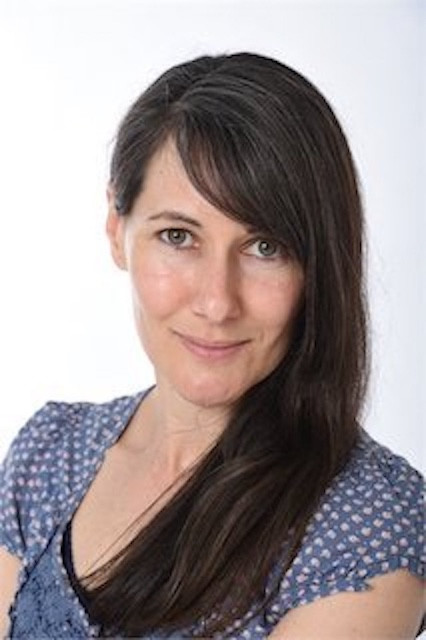
Dr Samantha Hulston
Postdoctoral Fellow
School of Education, Childhood, Youth & Sport
Biography
Professional biography
Dr Samantha Jayne Hulston is an ESRC Postdoctoral Fellow in the Centre for Literacy and Social Justice at the Open University. Samantha’s research expertise is in early literacies. In particular, Samantha researches the myriad ways young children respond to stories. Her work explores how movement, play and talk can be used to create inclusive and enjoyable reading experiences for young children. These research interests are informed and motivated by Samantha’s former role as a primary school teacher, specialising in the Early Years and Key Stage 1. In this role Samantha saw how young children used myriad communication competencies, including gesture, body movement and gaze, alongside playful approaches, such as animating toys and role play, to engage with stories after shared readings.
Samantha’s ESRC-funded doctoral research, entitled “An exploration into young children’s embodied engagement with storyworlds through curated storyworld play”, was completed at the University of Cambridge and won the UKLA (United Kingdom Literacy Association) doctoral thesis research prize in 2025. Samantha has been a recipient of a BERA (British Educational Research Association) Early Career Development Fellowship.
Research interests
Samantha is lead investigator on a ESRC postdoctoral fellowship. For this project, Samantha is building on the findings from her PhD research into young children's embodied engagement with storyworlds. In particular, Samantha is using participatory approaches to workshop play-based reading practices for Early Years and Key Stage 1 classrooms with class teachers. The project aims to co-design a toolkit for teachers that outlines and exemplifies how play-based approaches, that foreground movement and sensations, can support and nurture young children's connections with and enjoyment of narrative texts.
Samantha also currently leads a UKLA-funded research study into children and teacher’s responses to picture books that depict weighty issues. This study involves working closely with Reception class teachers to understand their conceptualisation of 'weighty' issues in the classroom as well as the opportunities and challenges these texts evoke. It also draws upon Samantha's use of play-based research methods to develop a nuanced understanding of how young children interpret and respond to stories that depict more 'weighty' issues such as loss, fear and conflict.
Prior to these projects, Samantha’s doctoral thesis explored young children’s embodied engagement with the storyworlds depicted in picturebooks in English Reception classrooms. The thesis argued that embodied engagement is an overlooked but significant part of young children’s reading and, thus, worthy of study. Samantha’s study boldly brought together sociocultural and sociomaterial perspectives to re-conceptualise embodied engagement as involving movement, absence of movements and sensation.
Teaching interests
Samantha currently contributes towards production of the module ‘Understanding young children’s play experiences and creative exploration’. She is also working with PGCE Wales to provide enrichment content for students on early literacy. Prior to her current role, Samantha taught at the University of Cambridge and has been a guest lecturer at the University of Roehampton. Her teaching at Cambridge involved supervising undergraduates on modules exploring ‘Language, Communication and Literacy’, ‘Play, Creativities and Imagination’, ‘Education, Creativity and Culture’, ‘Changing Landscapes of Childhood and Youth’. Additionally, Samantha provided research methods courses to postgraduate students on embodied inquiry, video methods and ethics in the social sciences.
Impact and engagement
Samantha is a co-convenor of the UKLA’s Participatory Approaches in Literacy Research Special Interest Group. She also acts as an ally to the Reception Class Teacher Network.
Projects
Young children’s embodied engagement with storyworlds: Attuning to movement and affect while playing with stories as an inclusive reading practice
This project is focused on the claim that young children make meanings about stories with their bodies. Yet, in classrooms there is an emphasis on children talking about stories, overlooking the body’s role in meaning-making and disadvantaging those with diverse communicative competencies. To redress this imbalance, this project explores young children’s embodied engagement with the storyworlds depicted in picturebooks through a novel play-based activity entitled 'curated storyworld play'. Additionally, it considers teachers perspectives with regards to how play-based approaches to reading engagement can be implemented in classrooms and how teachers can tune into the embodied facets of young children's engagement with texts. The project aims to highlight how embodied and play-based approaches can support young children’s reading engagement as an inclusive route to reading enjoyment.
Publications
Book
Reading and Writing for Pleasure: An Evidence-Informed Framework for Practice (2026)
Book Chapter
Informal Book Talk: how casual conversations support enjoyment of reading (2025)
Digital Artefact
Let’s talk about early reading: the power of informal book talk (2026)
Nurturing reading for pleasure in the Early Years through playful activities (2024)
Journal Article
Informal book talk: digging beneath the surface (2024)
[Book Review] Abigail Hackett ‘More-than-Human Literacies in Early Childhood’ (2024)
Embodied meaning-making: using literacy-as-event to explore a young child's small world play (2023)
Report
Approaches to Reading and Writing for Pleasure: An Executive Summary of the Research (2023)
Reading and Writing for Pleasure: A Framework for Practice (2023)